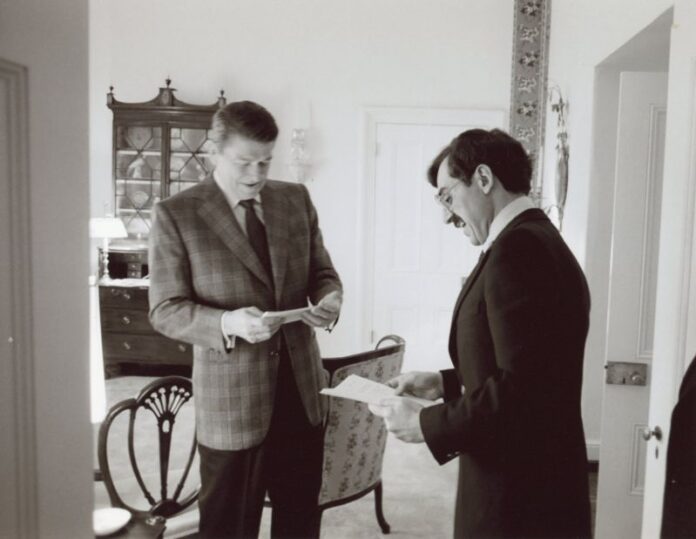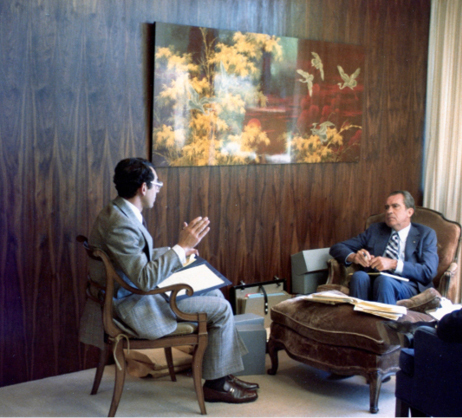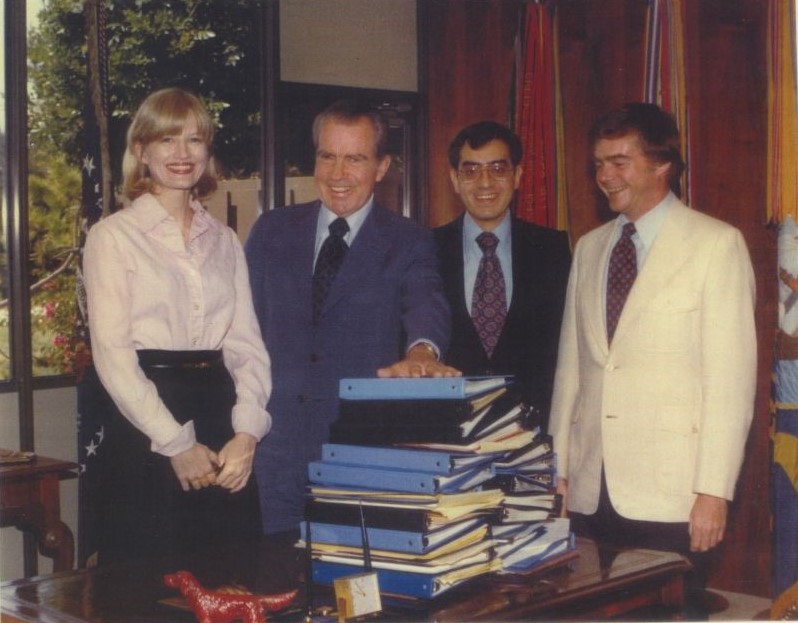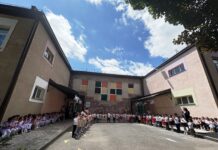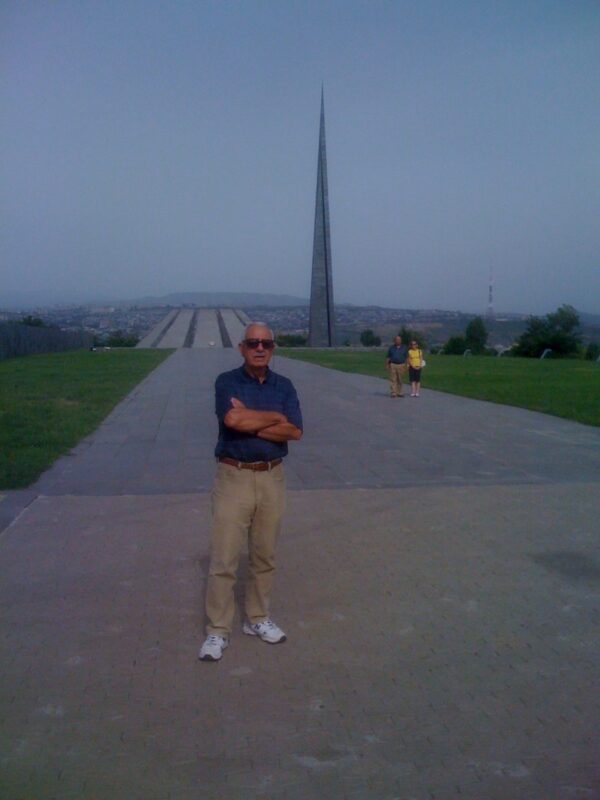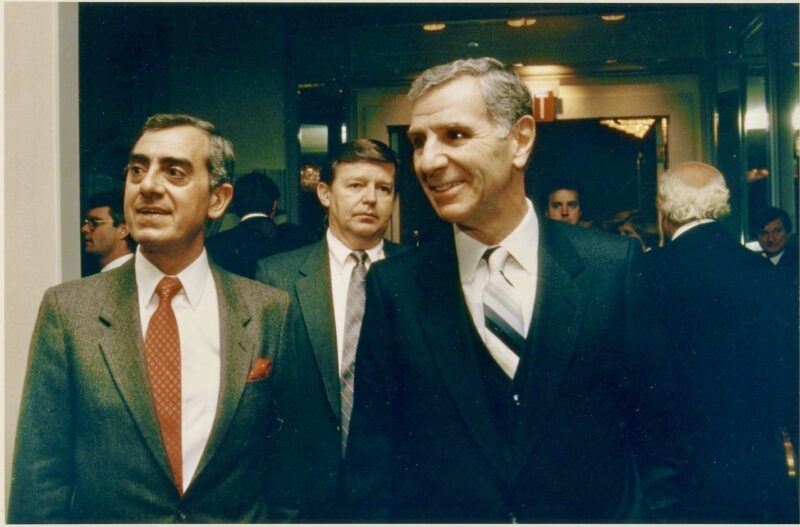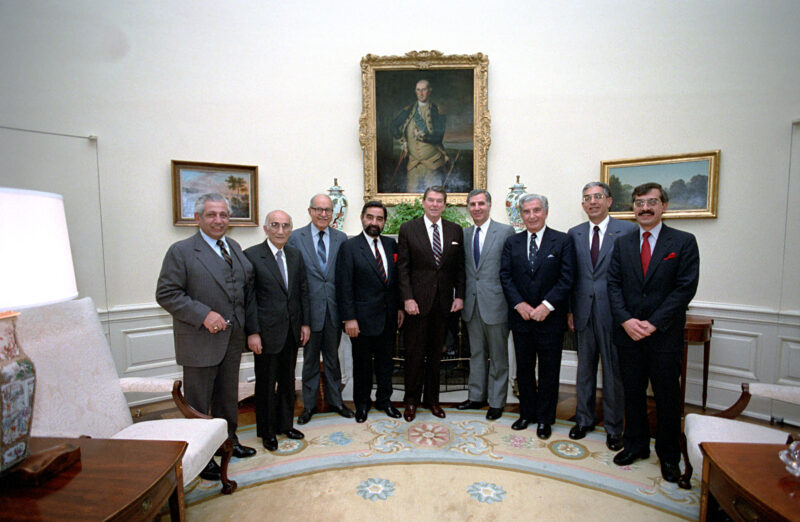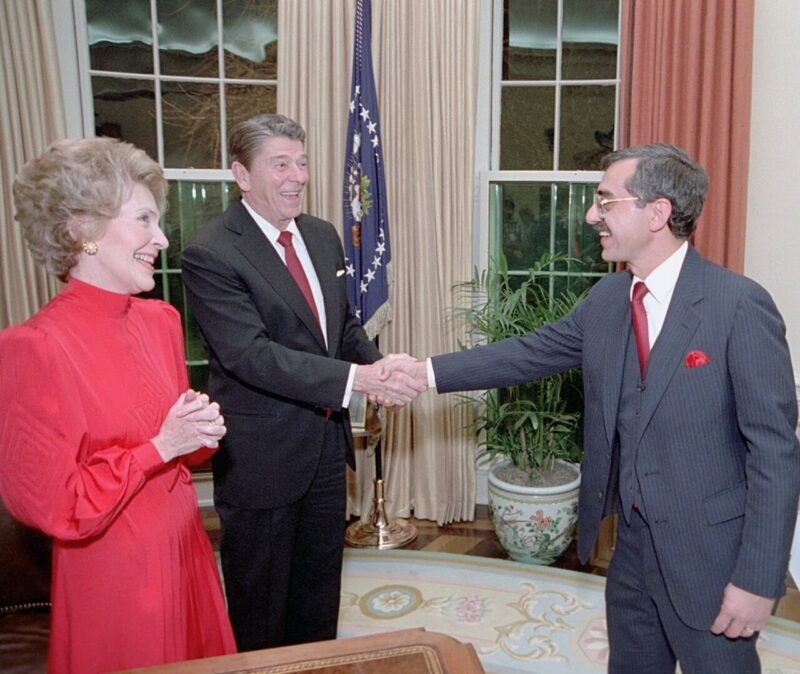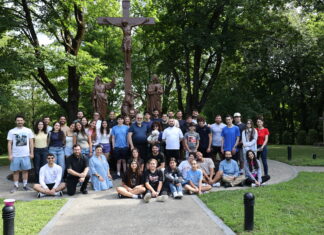WATERTOWN — Presidential speechwriter Ken Khachigian, often called the “lion of California GOP [Republican] politics,” after many decades of involvement in American politics at the highest levels, at the age of 79 has finally come out with his memoirs, aptly titled Behind Closed Doors: In the Room with Reagan & Nixon (Post Hill Press). Armenian readers will be particularly interested to find out there that one of the most renowned speeches of President Ronald Reagan, on which Khachigian worked, is anchored in the Armenian experience.

Chapter 20 of the book, “Crisis at Home,” discusses the controversy faced by the president after accepting an invitation by German Chancellor Helmut Kohl to mark the 40th anniversary of the end of World War II by speaking at a German cemetery, where it turned out dozens of members of the infamous Waffen SS combat divisions were buried. To help quell severe criticism, Reagan scheduled a visit to the former Bergen-Belsen concentration camp, and Khachigian was called in from his home in California to write what Reagan biographer Edmund Morris considered as Reagan’s greatest speech, delivered at the camp on May 5, 1985.
While preparing the speech, Khachigian accepted an invitation from a close friend, Jim Renjilian, to participate in the 70th anniversary commemoration of the Armenian Genocide at Arlington Cemetery. In his book, Khachigian recalls, “As I listened to the choir and service conducted by local Armenian clergy, I began hearing other voices — ones I heard as a young boy. Many of my parents’ social friends were, like Dad, Armenian immigrants, and genocide survivors from his ancestral village, Chomaklou, in Turkey’s Cappadocia region. When they gathered to visit, they sometimes softly referred to the Caghtagahnatoun [kaghtaganutiun] — the coerced exile from their homes when the Turks murdered the population of Anatolia by arms, starvation, pestilence, and forced march.”
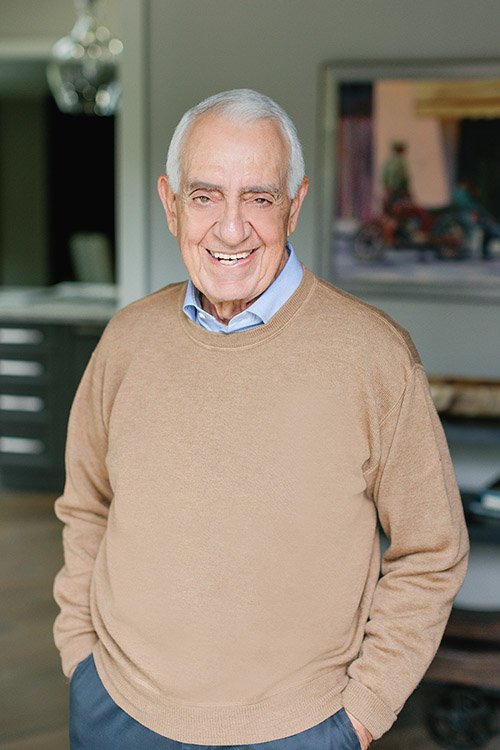
Khachigian also had read Aris Kalfaian’s Chomaklou: The History of an Armenian Village (transl. Krikor Asadourian; edited and revised, with a preface and afterword, by Michael Ekizian, New York: Chomaklou Compatriotic Society, 1982), with its descriptions of the horrors of the Syrian camps.
All this served as inspiration for Khachigian. He wrote, in the same chapter, “In 1915, there was a Bergen-Belsen in the Syrian desert that history had forgotten, and the pain and suffering endured by the victims and the survivors of the Armenian Genocide suddenly made my mission very real during our quiet ride back to the White House.” Of course, he later said, he did not tell President Reagan any of this at the time.



